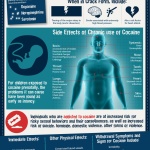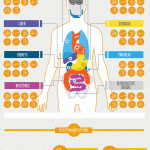
Research suggests that chronic cocaine use causes profound metabolic changes, reducing the body’s ability to store fat
The scientists found that cocaine use may cause profound metabolic changes which can result in dramatic weight gain during recovery, a distressing phenomenon that can lead to relapse. It was previously widely believed that cocaine suppresses the appetite and that the problematic weight gain during rehabilitation was a result of patients substituting food for drugs.
The study results challenge the widely held assumptions that cocaine use leads to weight loss through appetite suppression. Rather, they suggest a profound metabolic alteration that needs to be taken into account during treatment.
Notable weight gain following cocaine abstinence is not only a source of major personal suffering but also has profound implications for health and recovery. Intervention at a sufficiently early stage could have the potential to prevent weight gain during recovery, thereby reducing personal suffering and improving the chances of recovery.
The researchers scanned over sixty men to evaluate body composition, diets and eating behaviours. Half of the men in the sample had a dependency on cocaine while the other half had no personal or family history of drug abuse. They also measured the volunteers’ leptin, a hormone which plays an important role in regulating appetite and energy use.
The researchers discovered that cocaine users expressed a preference for fatty foods and carbohydrates and also had patterns of uncontrolled eating. Yet, despite cocaine users’ fatty diets they often experienced weight loss, and their body fat was significantly reduced compared to the control group. Levels of the hormone leptin were also low in cocaine users and were associated with the duration of the user’s stimulant use. A decrease in plasma leptin together with a high fat diet suggests an impaired energy balance, which typically leads to weight gain rather than weight loss.
The results suggest that overeating in regular users of cocaine pre-dates the recovery process, this effect being disguised by a lack of weight gain. As a result, when cocaine users in recovery discontinue using cocaine but continue consuming their high fat diets – now without the effects of cocaine on their metabolism – they gain weight.
Reference for: Chronic Cocaine Use Reduces The Body’s Ability To Store Fat



